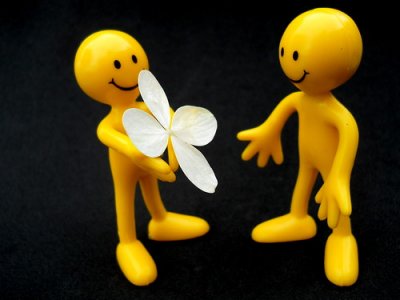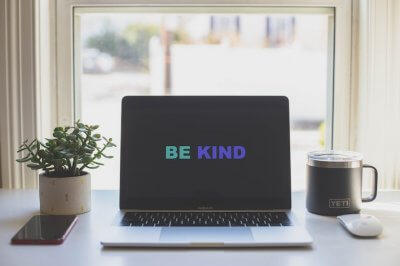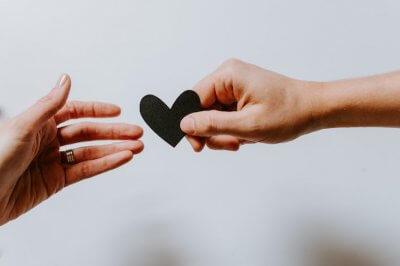Kindness and Mental Health – Do You Need to Be Nice?

By: Kate Ter Haar
by Andrea M. Darcy
“Kindness is a gift everyone can afford”. “Love and kindness are never wasted”. We hear kindness quotes so often, we might not take them seriously.
But have we underrated the power of kindness? Psychology seems to think so. A growing body of research now recognises a connection between kindness and mental health.
Kindness and mental health – how does it help?
Do we really have to be kind? When we see selfish people getting ahead all around us? There is no rule, but it might be that kindness gets us ahead in better, longer lasting ways.
1. Kindness makes us feel happy (no matter who it involves).
A 2019 study published in the Journal of Social Psychology looked at how acts of kindness made us feel, and if our responses differed depending on who we were kind to.
It found that all kindness led to increased wellbeing, whether with strangers, or even just being kind to ourselves. And the more our acts of kindness, the better we will feel.
It’s fair to say that the above study was small and limited. A much more thorough meta-analysis (reviewing all the current research) looked at 27 different studies and still concluded that kindness has a positive effect on wellbeing, if only a medium effect at best. But significant enough that they recommend more research (and note that the people behind this study have started a charity called “Kindlab“).
2. We experience greater life satisfaction if we perform acts of kindness.
You might want to shake up your kindness routine. While previous studies had already shown that acts of kindness leave us with higher life satisfaction scores, a recent British study found that novel acts of kindness, so doing different sorts of things, increased those scores.
3. It might safeguard you from stress causing physical health issues.
We now know that mental health and physical health are connected. And if we are kind, it might mean our stress is less likely to connect to illness.
An interesting study on the neurohormone oxytocin found that even two years after charitable behaviour, participants still experienced less stress-triggered health problems, although the effect depended on their genetic grouping.
Defining kindness

Photo by: Dayne Topkin
How do we know when we are or aren’t being kind, and will or won’t reap the above benefits?
The definition of kindness has been debated since as far back as Aristotle, who felt kindness “may be defined as helpfulness towards some one in need, not in return for anything, nor for the advantage of the helper himself, but for that of the person helped.” Which could, though, be confused with altruism.
So then how exactly is kindness different from it’s siblings of compassion, empathy, and altruism?
The elements of kindness?
According to the results of a British study, kindness might be easier to achieve.
British psychologist David Canter and his colleagues developed the ‘kindness measure’, a 40-item questionnaire. Their research concluded that kindness consists of:
- benign tolerance (being courteous)
- empathic responsivity (considering the feelings of others)
- and principled proaction (well-meaning behaviour and actions that come from a desire to be honourable).
So we don’t have to understand someone’s experience to be kind (empathy) or feel for their plight (compassion). We don’t have to offer others advantages at the cost of our own (altruism). We simply have to take considerate and well-meaning actions.
Where kindness and mental health go wrong

photo by: Kelly Sikkema
There’s a catch. While kindness and mental health can be connected in a positive way, kindness, when it’s not for the right reasons? can also achieve the opposite.
Here, Aristotle got it right, pointing out that people who are “being or have been helpful simply to promote their own interest … or that they were not doing a favour, but merely returning one… in either case the action is a mere return, and is therefore not a kindness.”
Nowadays we’d call ‘giving to get’ manipulation, and wanting to be valued in return for our kindness codependency.
When we are codependent, we gain our sense of self from being needed, instead of from within. We think we are being kind, but we are actually caretaking or pleasing others in order to win approval and love. Which is really controlling and manipulating them.
If we do not received that expected kickback, of a returned favour, approval, or praise? Then the result is frustration, and a plummeting of our self-esteem.
Sounds a bit too familiar? It might be time to ask if the person you need to start being kind to is yourself. Who taught you that you have to meet others’ needs instead of your own? When will you start to see that you are valuable just as you are, regardless of whether others approve?
But I am not naturally a kind person
Evolutionary psychologists and biologists would argue otherwise. “Kin altruism” means we have evolved to be kind to those around us as we recognise it helps us and our offspring survive.
And psychologists studying babies now suggest that babies are prone to acts of kindness. Research by Harvard psychologists Warneken and Tomasello, for example, found that, “young children have a biological predisposition to help others achieve their goals, to share resources with others and to inform others of things helpfully.”
So why do some of us struggle to be kind? If you are comparing yourself to those around you who seem to find kindness so easy, cut yourself some slack.
They might have had easier upbringings, with less ‘adverse childhood experiences’ like neglect, a broken home, or trauma. Abuse in particular, of any kind, teaches a child they are without value, and don’t deserve things like kindness. This can lead to projecting anger onto others, and refusing to show empathy or charity.
Can talk therapy help me be kind?
Yes. Compassion-focussed therapy (CFT), for example, focuses on helping you be easier on yourself and others. Therapies from the humanistic school of thought, like person-centred therapy, teach you to recognise your own inner resources, and offer you unconditional positive regard you then can extend to others.
But note that therapy is not about being a ‘nice’ person, it’s about being an authentic person who knows their boundaries. Sometimes that means being kind. Other times, that means telling someone a very firm no, so we can be kind to ourselves.
Ready to be kinder to yourself and more compassionate with those around you? Book a session with a top London therapist who can help. Or find a UK-wide therapist and affordable online-therapy now on our booking platform.
Still have a question about kindness and mental health? Or want to share your kindness story? Use the comment box below.
 Andrea M. Darcy is a mental health and wellbeing expert and writer. She also runs a consultancy helping people find their perfect therapy and therapist. Kindness is one of her favourite things! Follow her on Instagram for useful life tips @am_darcy
Andrea M. Darcy is a mental health and wellbeing expert and writer. She also runs a consultancy helping people find their perfect therapy and therapist. Kindness is one of her favourite things! Follow her on Instagram for useful life tips @am_darcy




